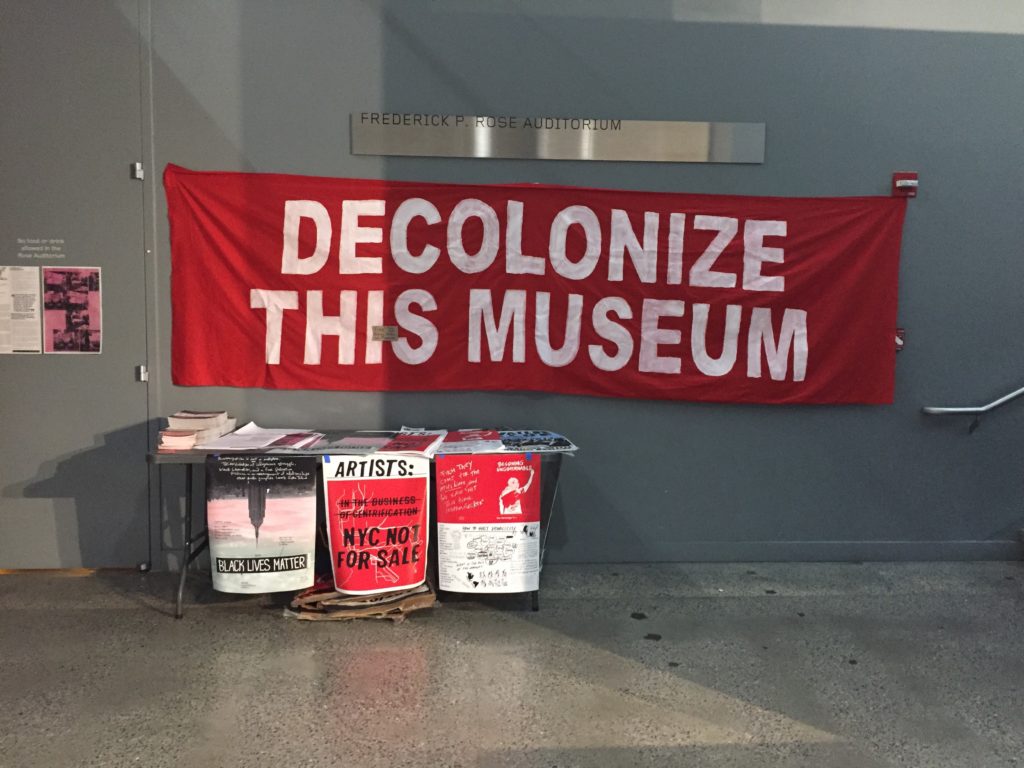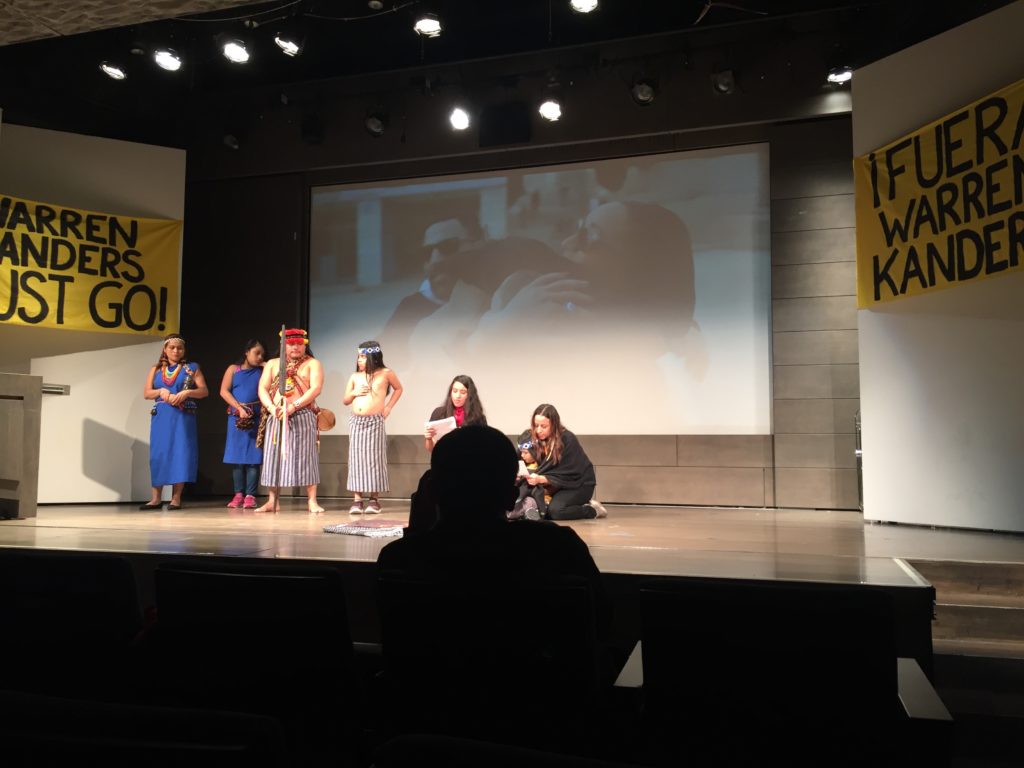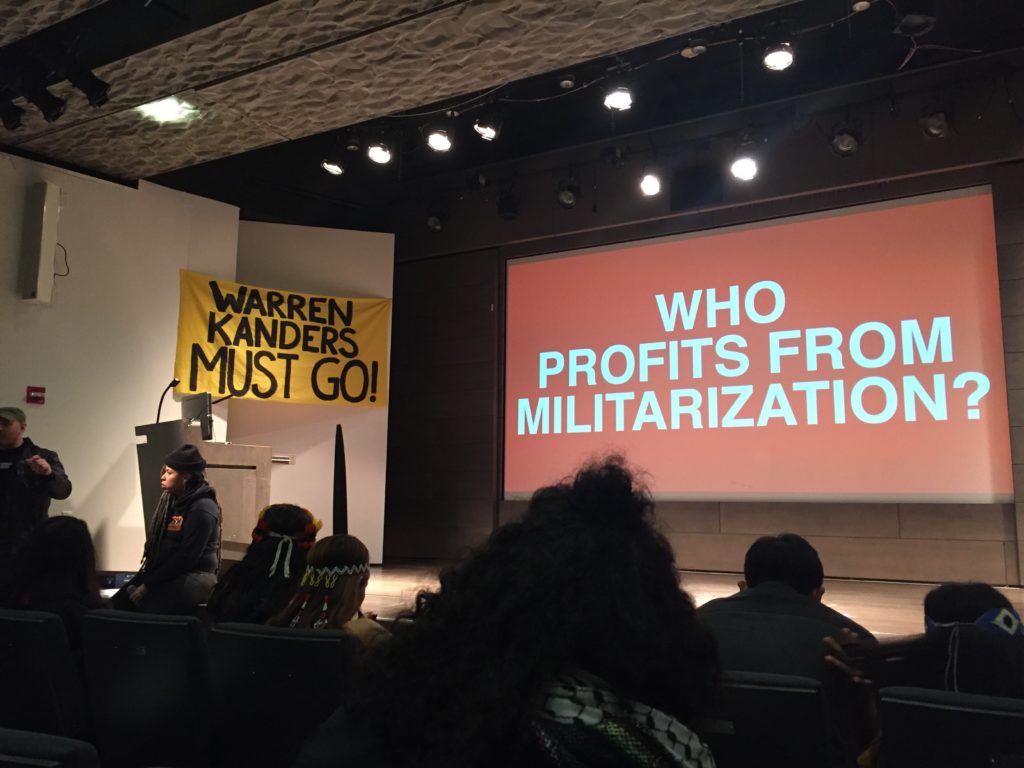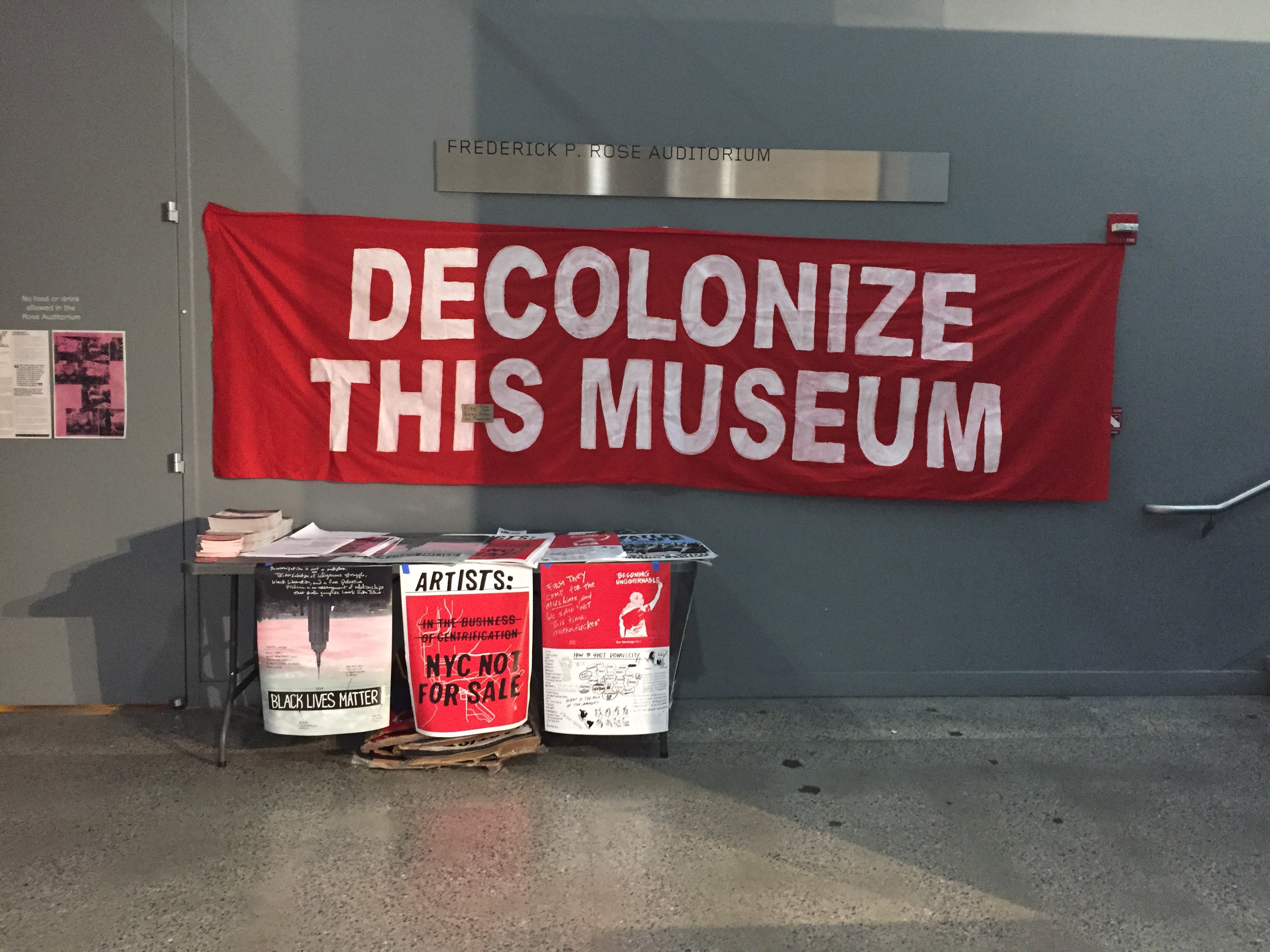[ad_1]

Banners at a town hall held at Cooper Union, New York, on January 26, 2019.
ALEX GREENBERGER/ARTNEWS
Protesters have once again set their sights on Warren B. Kanders, the vice chair of the board of the Whitney Museum in New York. At a town hall held on Saturday at Cooper Union in New York by Decolonize This Place in collaboration with Chinatown Art Brigade and W.A.G.E., curators, activists, artists, and art workers assembled to discuss tactics for ousting Kanders from his position at the museum.
Saturday’s town hall follows a Hyperallergic report that revealed Kanders’s ownership of the company Safariland, which manufactures tear gas canisters and other products that have been used against asylum seekers along the U.S.-Mexico border. Once the report was published, 95 Whitney staff members, including curators Marcela Guerrero and Rujeko Hockley, signed an open letter that urged the museum to consider asking for Kanders’s resignation. Whitney director Adam Weinberg responded by calling for conversation, and Kanders issued a statement saying that he was “not the problem.”
Decolonize This Place previously held a protest at the Whitney this past December. At that protest, demonstrators positioned the Kanders controversy within larger histories of colonialism, queer erasure, and gentrification, and burned sage in the museum’s lobby. A statement handed out at that action and addressed to Whitney director Adam Weinberg read, in part, “Your statement makes it clear which side you are on: the side of Safariland, and this we simply cannot accept.”
That sentiment was reiterated at today’s town hall. “We can no longer sit idly by,” artist Shellyne Rodriguez told the audience. She was framed by banners taped to the theater’s walls reading, “WARREN B. KANDERS MUST GO!” and “¡FUERA WARREN B. KANDERS!“
Decolonize This Place member Amin Husain said that the Kanders situation at the Whitney relates not only to contemporary happenings along the U.S.-Mexico border—it is also connected to histories of colonialism, sexism, racism, and oppression. And, he explained, Kanders’s position at the Whitney is similar to those of other board members at museums around the world. “We know the Whitney is not an exception,” he said. “We know it’s happening everywhere.”
Reached on Friday by ARTnews, a spokesperson for the Whitney declined to comment.
Among the attendees at today’s event were a few past Whitney Biennial participants, including Lyle Ashton Harris and Victoria Sobel, as well as art historian David Joselit. According to speakers at today’s event, multiple Whitney staff members were also present.

Members of the Shuar nation leading a land acknowledgement ceremony.
ALEX GREENBERGER/ARTNEWS
Many of the speakers at the town hall, which began with a land acknowledgement ceremony by members of the Shuar nation, addressed the controversy’s relevancy to artists who are being contacted to participate in the 2019 Whitney Biennial. (That exhibition is set to open on May 17; an artist list has yet to be revealed.) On Wednesday, W.A.G.E., a group that advocates for artists to be compensated for their labor, issued an open letter addressed to these artists, urging them to withhold their work in solidarity with Whitney staff and to demand payment for the art they produce using WAGENCY, a platform for negotiating fees.
Lise Soskolne, the core organizer of W.A.G.E., elaborated on the group’s letter at today’s town hall, and told attendees that W.A.G.E.’s role was to stand with the employees who signed the Whitney letter. “The age of political neutrality is over,” she said today, “and if it is not, it should be.”
Betty Yu, a member of Chinatown Art Brigade, led the crowd in a repeated chant of “Whitney Museum, shame on you!” Speaking of the museum’s decision to keep Kanders on its board, she said, “This is artwashing,” adding that the museum “cannot be absolved” by having exhibitions devoted to “liberal” artists and persons of color.

Artist Shellyne Rodriguez speaking at a town hall held at Cooper Union, New York, on January 26, 2019.
ALEX GREENBERGER/ARTNEWS
Multiple speakers urged the audience to take action. “Today is art-historical,” artist Alicia Grullón said, adding, “You will be reading about this in textbooks to come. But just because you are sitting in these seats, you cannot pat yourselves on the back, because there is work to be done.”
Curator and editor Nikki Columbus, who filed a complaint this past summer with the New York City Commission on Human Rights against MoMA PS1, alleging that the museum had rescinded a curatorial job offer once she had a baby, framed the Kanders debate in terms of labor. She brought up the recently formed New Museum union, as well as an action held by art handlers at PS1 last year. “Let’s unionize every institution,” she said. “Let’s withhold our labor and our art until they change.”
After hearing from the speakers, audience members split into small groups to discuss methods for taking action against the Whitney in the run-up to the biennial. Group leaders gathered afterward to present some ideas to the audience. Some asked for greater research to be done into other board members and various art-historical precedents for protests of this sort. Other suggested alternative exhibitions to the Whitney Biennial, projections, and open letters. “If the Whitney doesn’t reverse course, we’re going to escalate,” Husain told the audience at the end of the event.
[ad_2]
Source link

